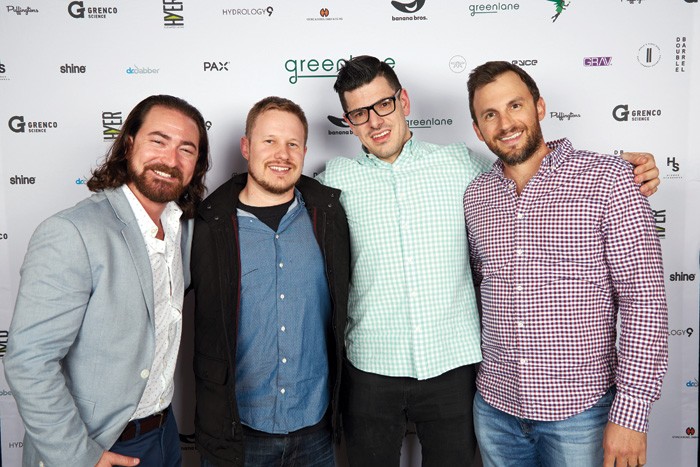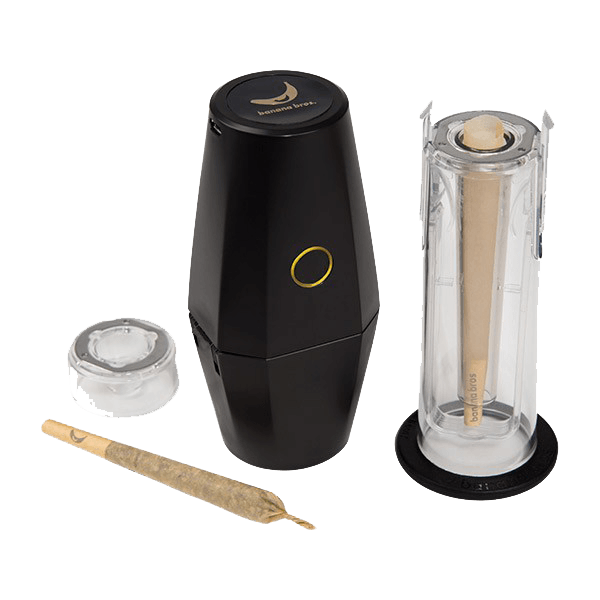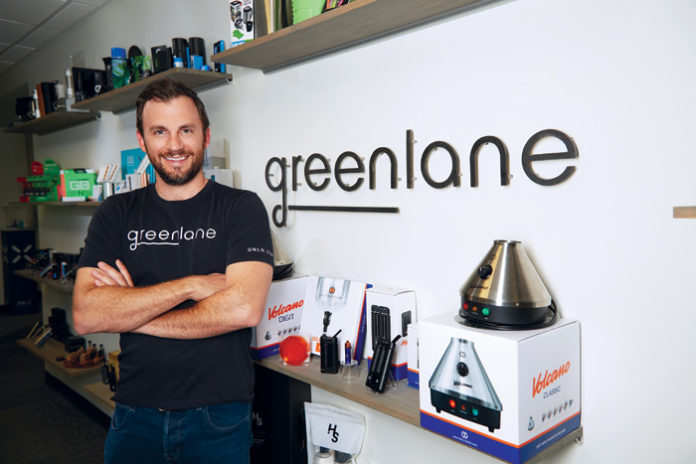Greenlane founder and Chief Executive Officer Aaron LoCascio admits he’s been obsessed with acquisitions “for a very long time”—which is why his company’s recent acquisition of its closest competitor, VaporNation, should have surprised no one familiar with LoCascio’s growth strategy. The buy gives Greenlane a much greater scale, which LoCascio said should allow the company to achieve greater savings throughout its supply chain and logistics.
“We want to take our savings and pass them on to our customers,” he said. “Providing first-class service and premium products are really what we are about, [so] the acquisition of VaporNation doesn’t change anything [where customers are concerned]. It only emphasizes who we are.”
Greenlane will continue to operate VaporNation’s retail site, VaporNation.com, while absorbing the company’s wholesale operations into its own. Although he keeps most plans to himself, LoCascio hinted even more acquisitions could be on the way as part of a broader development plan. “We’ve been hard at work and steadily growing for over thirteen years now,” he said. “In the past couple of years we have really pulled ahead of our competition, and with this acquisition we have sprinted ahead even farther.”
mg: You started Greenlane in 2005 while you were a sophomore in college. What jobs had you held before then?
Aaron LoCascio: I was a full-time student at the University of Central Florida, majoring in accounting. My working background is pretty marginal. I’d just turned 20 years old, so all my jobs previous to [Greenlane] were working as a cashier at a carwash and movie theater. I’d also mowed lawns and was a restaurant busser and host. In addition to permanently imbuing me with a strong work ethic and sense of humility, the service industry taught me you should treat every person you meet with respect, dignity, and kindness.
The industry seemed to shift big-time around 2007 or 2008. The market began to get crowded, too.
When I first started, no one knew what a vaporizer was. When people would ask what I did for a living, I’d say “I sell vaporizers” and would get a very broad array of responses, including the assumption that I was selling nebulizers for infants and children. There was a disconnect in people’s understanding, because the market was so young and still fairly unknown.
In 2007 electronic cigarettes became more popular, and that brought about awareness. At the present time, a broad population of people know what a vaporizer is, and when a lot of people know about products and industries, it invites a lot of competition.
You’ve had a front-row seat to incredible technological advancements in the vape sector, especially the revolutionary lithium-ion batteries.
Product evolution has been pretty significant since I first started. Prior to lithium-ion batteries and smartphone technology, vaporizers were very large and clunky, with most of them having to be plugged into walls.
Another big advancement was expanding vaporizer medium capabilities. Originally, devices were made for use with loose-leaf; there weren’t any for oil or concentrates. It wasn’t until about 2011 or 2012 that vaporizers for oil and concentrates came out.
For me, the technological changes were really about having to stay ahead of the curve and seeing the trends before they happened, so we could have priority access to products we believed the market would want. You have to stay ahead and anticipate what people want, which is always very difficult to do.

When it comes to sales, how much of your business is focused on dispensaries?
We’ve been the leader in distributing premium brands to smoke shops for a number of years and have really built a deep relationship with those retailers. It’s still the bulk of our business, but the dispensary side is starting to grow very quickly. Dispensaries have, for the most part, been slow to develop robust accessory offerings in their stores, [instead] choosing to focus more on selling the plant in its various forms.
More hard goods and merchandise have been showing up in dispensaries over the past six months to a year.
As the dispensaries evolve, and in some cases consolidate, we are seeing them increase their merchandising acumen and begin to offer a highly curated selection of premium products. We are helping them identify the best products and build out their merchandising assortment to maximize their revenue and profitability, which is leading to real growth for us in the sector.
When you talk to dispensary owners and budtenders, what feedback do you hear about consumer trends?
I’ve noticed two significant trends. The first is that everyone is now putting their focus on brands—their own brands and consumer brands. A lot of energy and effort are being put into the branding of packaging and devices. Branding has become incredibly important to dispensaries.
The second trend I’ve noticed is a lot of regulations. Regulations are rapidly changing, so there’s been a pretty constant evolution of packaging and product requirements for dispensaries in accordance with their state and local laws.
What’s selling well for you right now?
In dispensaries, our best-selling products aren’t actually the accessories we are known and loved for in our wholesale business, but [instead] are premium child-resistant packaging from Pollen Gear, which we sell to cultivators and processors. Also, closed-system vaporization devices like G Pen Gio and Double Barrel which we sell to licensed processors who fill them. Those products end up on the shelves at many dispensaries across the country. On the accessory side, Volcano, PAX 3, Davinci IQ, G Pen Elite, Dr. Dabber Aurora, Marley Natural Glass, and Aerospaced Grinders all do really well.
What launches are you most excited about in 2018?
We have some pretty unique, compelling, and innovative products that we will be bringing to market in the near future. One of the most exciting launches this year will be the OTTO by banana bros. OTTO is the world’s first automatic smart-rolling machine and is able to grind and pack twenty to thirty perfect cones per charge.

Work-wise, what keeps you up at night?
Taking our eyes off the prize is what keeps me up at night. We’ve done a fantastic job of getting where we are today. I never want Greenlane to be one of those here today, gone tomorrow stories. I’m always thinking about never losing sight, staying humble, being grateful for what I have, and making sure I never stop innovating, or else it could be gone tomorrow. I want to make sure everyone is enjoying this experience along the way.
You’re a big fan of Elon Musk. As an entrepreneur, what have you learned from him?
Elon Musk is definitely a hero of mine. He was on the brink of losing everything, but one day he got a phone call and his whole life changed for the better: He got the NASA contract. That’s pretty inspiring to have a dream and watch it almost crumble to pieces, but believe in it so much that it comes true. Elon Musk never stopped believing. He has such immense conviction in his dreams. To see that follow through and actually become a reality is very moving.
What’s the best business advice you’ve received?
I occasionally tell a story about what someone once said to me a long time ago. I don’t even know if it qualifies as business advice, but it’s something that resonated with me.
When I was working at a carwash, I was asked to go pick up some parts. There I was in the store, looking around in amazement because I didn’t know a store like that ever existed, and some random stranger looked over at me and said, “You know, you could sell anything.” Then he pointed at the lights on the ceiling and said, “Light bulbs, for example. You could sell light bulbs. If you sell the most light bulbs out of everyone else, then you’re doing pretty well for yourself.”
It was a completely random stranger that I wouldn’t recognize if I ever saw him again, but his words stuck with me, and it really drove me to want to build a company that was the biggest and most excellent. It made me want to start a company that everyone loves —something that would focus on service.











